Introduction
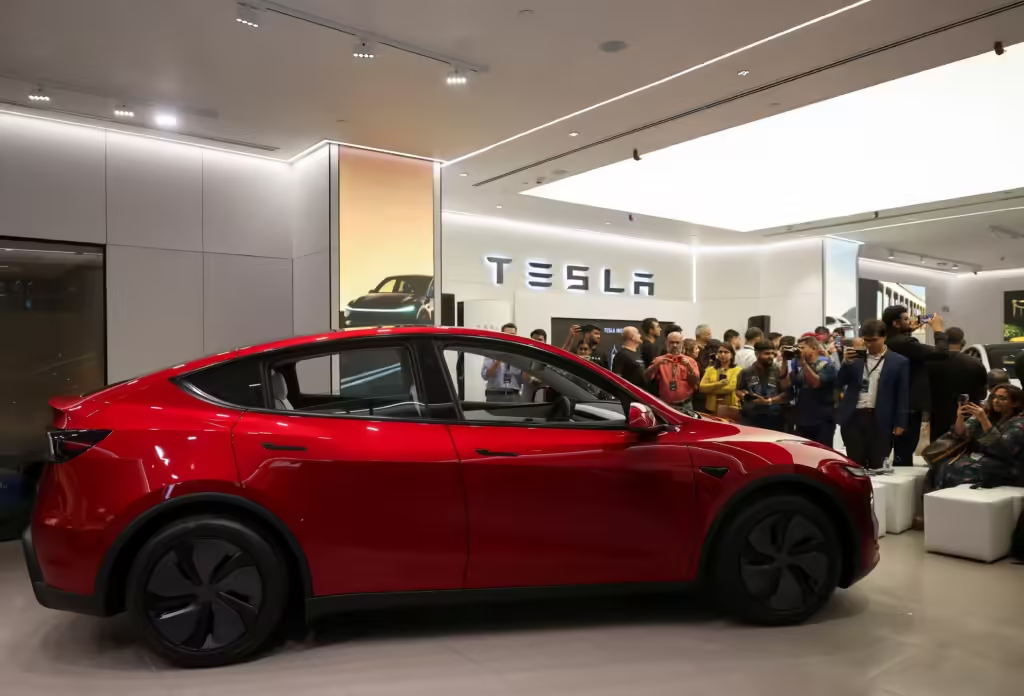
Tesla, a leading name in the electric vehicle (EV) industry, has consistently showcased its commitment to global expansion. The company’s interest in entering the Indian market represents a significant step towards achieving wider acceptance of electric mobility in one of the world’s largest automotive markets. India, with its growing population and increasing pollution levels, is considered an ideal environment for the promotion of sustainable transportation solutions. The Indian government’s push for cleaner energy alternatives, including substantial incentives for EV production and adoption, has further intensified Tesla’s focus on the region.
Historically, Tesla has been exploring opportunities in India for several years. Initial discussions and research into potential market entry strategies began as early as 2016. However, various factors, including regulatory challenges and infrastructure limitations, delayed the company’s entry. Despite these challenges, Tesla has maintained an optimistic outlook regarding establishing a presence in India, recognizing the vast potential in a market that is experiencing heightened appreciation for sustainable and technologically advanced vehicles.
The strategic timing of Tesla’s anticipated launch is also critical. With a rising middle class and growing awareness of climate change impacts, consumers in India are increasingly seeking alternatives to conventional gasoline vehicles. Furthermore, the government has set ambitious targets for EV adoption, creating a conducive environment for companies like Tesla. By entering the Indian market, Tesla not only stands to gain significant market share but also to contribute positively to the nation’s vision of a greener future.
The company’s global strategy emphasizes not just reaching new consumers but creating a sustainable ecosystem for electric vehicles. The forthcoming updates on Tesla’s launch in India are highly awaited, as they promise to reshape the automotive landscape and further solidify India’s position in the global electric vehicle narrative.
Current Status of Tesla’s Plans in India
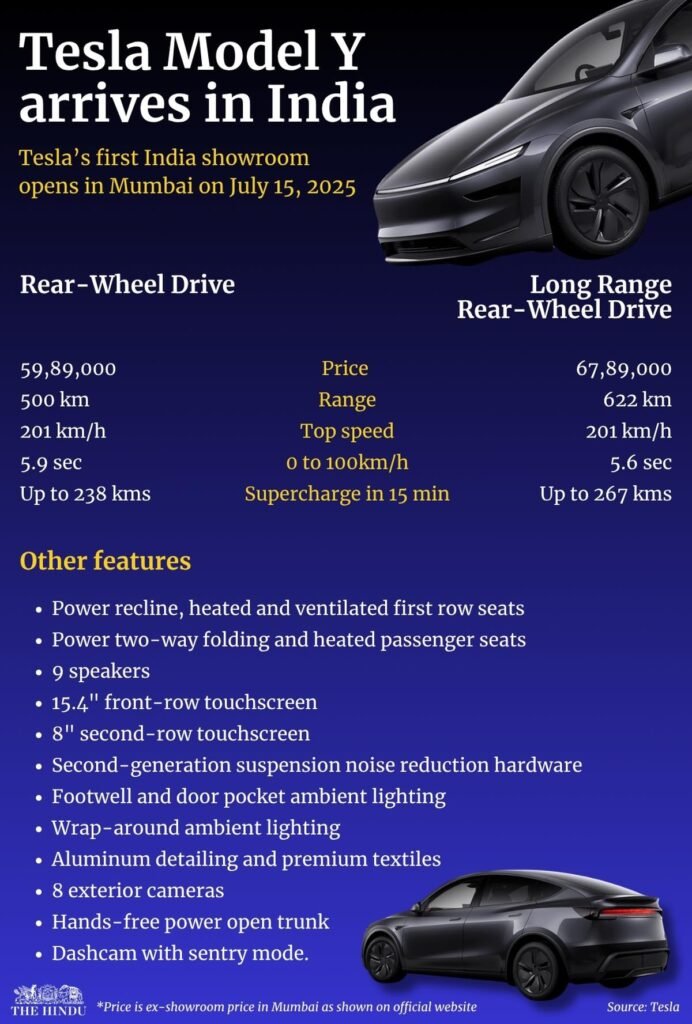
The anticipation surrounding Tesla’s entry into the Indian market has been a subject of considerable interest among automotive enthusiasts and investors alike. As of late 2023, Tesla has taken notable steps toward establishing a foothold in India, although specific timelines for their official launch remain fluid. According to recent communications from Tesla executives, the company is actively evaluating various locations for a potential manufacturing facility in India. This move aligns with the Indian government’s initiatives to bolster electric vehicle (EV) production within the country, thereby supporting sustainable development and reducing reliance on fossil fuels.
In September 2023, Elon Musk, the CEO of Tesla, reiterated the company’s commitment to India in a conference call, highlighting the immense potential of the Indian market due to its growing economy and increasing demand for eco-friendly transportation solutions. He emphasized Tesla’s objective to not only sell vehicles but also to establish a robust manufacturing base that would contribute to local employment and innovation. Discussions with local and state governments are reportedly underway, focusing on incentives and support that Tesla may receive to facilitate its operations. Such collaboration could expedite their entry into the market.
Furthermore, Tesla has been in talks with several Indian suppliers to bolster its supply chain and ensure the availability of components necessary for EV production. This is particularly important given India’s diverse market needs, including varied consumer expectations regarding vehicle features and pricing. Additionally, partnership agreements with Indian technology firms are being explored to enhance Tesla’s software offerings, particularly in areas like autonomous driving and vehicle connectivity.
Overall, while there is no finalized launch date, Tesla’s proactive engagement in India indicates a promising trajectory towards potentially becoming a significant player in the burgeoning EV sector of the country.
Government Regulations and Incentives for Electric Vehicles
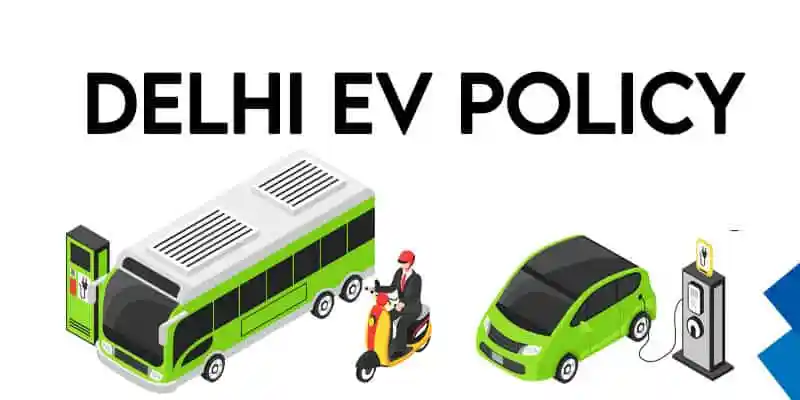
The Indian government has implemented a variety of regulations and incentives to promote electric vehicle (EV) adoption in the country. These initiatives play a crucial role in shaping the electric vehicle market, making it vital for companies like Tesla to navigate this landscape effectively. One of the key components of the regulatory framework is the Faster Adoption and Manufacturing of Hybrid and Electric Vehicles in India (FAME India) scheme. This initiative aims to provide financial incentives to both manufacturers and consumers to encourage the adoption of EVs.
Under the FAME scheme, the government offers subsidies on the purchase of electric two-wheelers, three-wheelers, and four-wheelers, thereby reducing the upfront costs for consumers. Additionally, the National Electric Mobility Mission Plan (NEMMP) outlines a comprehensive roadmap for the growth of the electric mobility sector in India by 2030. These government policies are designed to decrease the dependence on fossil fuels, reduce pollution levels, and improve economic growth through green technology.
Moreover, the government has initiated several state-level policies that complement national goals, including tax exemptions, an increase in charging infrastructure, and concessions on road tax and registration fees for electric vehicles. These regulations significantly impact Tesla’s operational considerations, compelling the company to align its strategy with the government’s vision for e-mobility. Tesla’s potential launch in India would likely benefit from these incentives, ensuring a more favorable market entry and offering consumers competitively priced options.
In conclusion, the regulatory framework and incentives provided by the Indian government are pivotal in encouraging electric vehicle adoption. For Tesla, understanding and adapting to these policies will be essential in formulating an effective business strategy that aligns with India’s environmental objectives and consumer needs.
Challenges Faced by Tesla in India
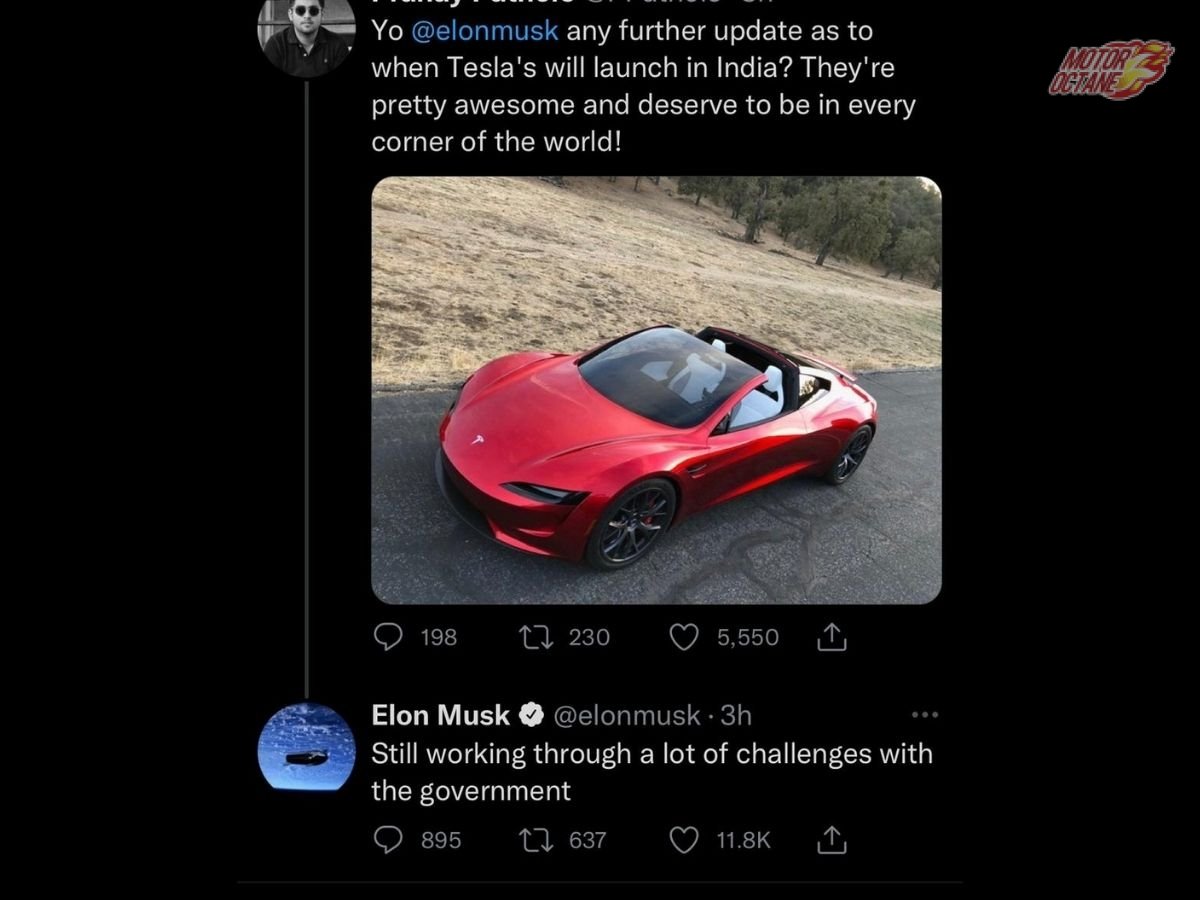
Tesla’s entry into the Indian automotive market is highly anticipated, yet it is fraught with several challenges that the company must navigate effectively. One of the primary hurdles Tesla faces is the lack of a comprehensive charging infrastructure. The development of charging stations is vital for fostering electric vehicle adoption. Currently, the limited availability of charging points could hinder potential buyers from choosing Tesla vehicles, impacting sales and operational efficiency. Thus, creating a robust network of charging stations is essential for Tesla’s success in India.
Another significant challenge is the competition from established local vehicle manufacturers. Indian automakers have begun producing electric vehicles that cater to the local market’s needs and preferences, often at lower price points. Competitors like Tata Motors, Mahindra, and others have already made strides in offering affordable electric options, which could pose a significant threat to Tesla’s market share. The presence of these local companies, combined with their understanding of Indian consumers, amplifies the competitive landscape Tesla must contend with.
Pricing concerns further complicate Tesla’s ability to succeed in India. The company is known for its premium vehicles, which may not align with the budget constraints of a large segment of the Indian populace. Import duties, taxes, and additional costs can escalate the retail price of Tesla models, making them less attractive in a price-sensitive market. Addressing these pricing challenges, perhaps through local manufacturing, could be essential for making Tesla vehicles more accessible to Indian consumers.
Lastly, Tesla must consider supply chain obstacles that could impact its operational timeline. The logistics of sourcing materials, managing production, and delivering vehicles in a vast country like India pose potential delays. As Tesla assesses its strategy for entering this market, overcoming these logistical and competitive challenges will significantly influence the company’s launch timeline in India.
Timeline for Tesla’s Launch in India
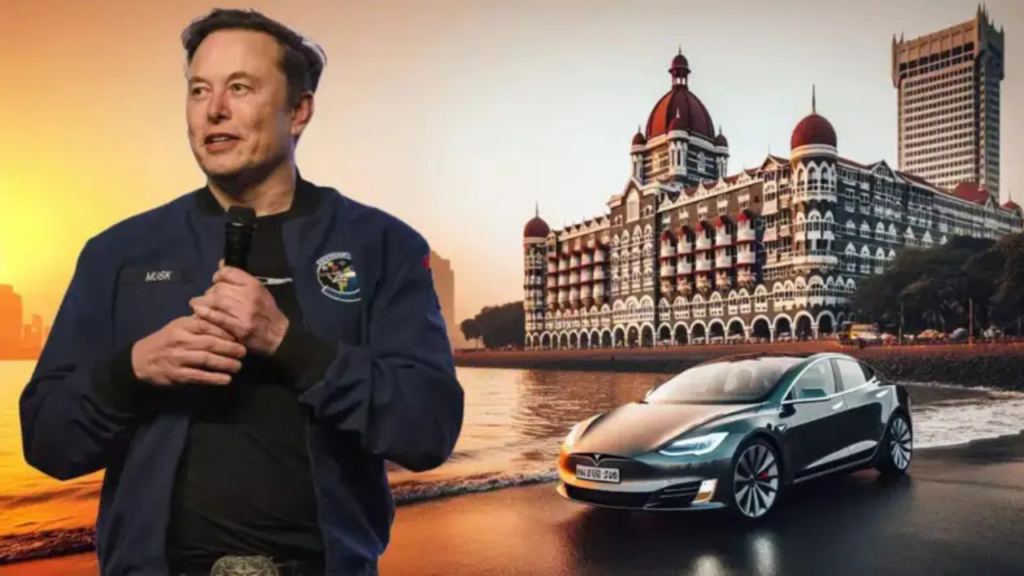
The anticipation surrounding Tesla’s entry into the Indian market has been mounting for several years. Industry experts and enthusiasts alike have actively speculated on when the electric vehicle (EV) manufacturer would officially launch its operations in India. Tesla’s CEO, Elon Musk, has previously expressed interest in the Indian market, citing its potential and the growing demand for sustainable transportation solutions. In light of recent developments, it is essential to establish a prospective timeline for Tesla’s launch in India.
In late 2020, reports indicated that Tesla had begun the process of establishing its presence in India, with plans to set up a production facility. During that period, executives hinted at timelines that suggested the debut of models like the Model 3 and Model Y in the Indian market. Musk even stated via social media that Tesla would prioritize India but highlighted the complexity of navigating regulatory requirements and infrastructure challenges. Throughout 2021, there were signs of progress, including the establishment of an Indian subsidiary, which raised hopes for a 2022 launch.
However, the timeline for the official launch has faced several delays, mainly attributed to government policy changes, pricing negotiations, and the need for charging infrastructure development. Recent statements from Tesla representatives suggest that while they remain committed to entering the Indian market, a revised target for a potential launch is now set for 2024. This timeline aligns with Tesla’s broader strategy to expand its global footprint while fostering local partnerships for distribution and service.
As of now, it appears that Tesla is focusing on ensuring its entry into India will be successful and sustainable, emphasizing the importance of addressing local market dynamics. As consumers await the arrival of Tesla vehicles on Indian roads, it remains critical for potential buyers to stay informed about any updates regarding the official launch schedule.
Market Potential and Consumer Sentiment in India
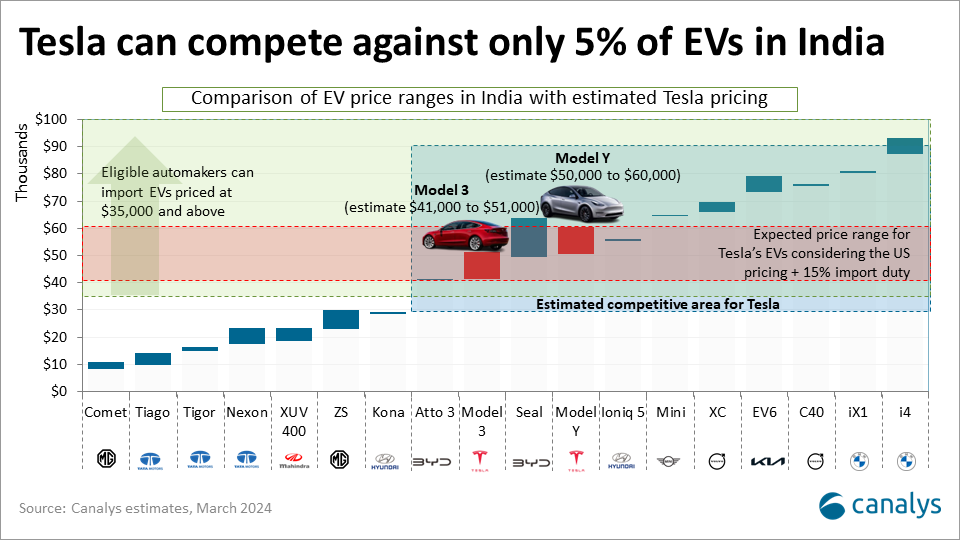
The Indian automotive market is on the cusp of a significant transformation, particularly regarding electric vehicles (EVs). With increasing concerns over pollution and a pressing need for sustainable transportation, consumer sentiment in India is shifting towards greener alternatives like electric cars. The government has also contributed positively by implementing various incentives to promote electric mobility, which has amplified interest among Indian consumers.
Recent surveys indicate that a considerable percentage of the Indian population is becoming more aware of the benefits of electric vehicles, such as reduced operational costs and environmental impact. According to a study conducted by a well-known automotive research firm, over 60% of respondents expressed a willingness to consider purchasing an electric vehicle. This growing interest reflects a broader trend towards sustainability and the move away from traditional petrol and diesel vehicles.
As societal awareness about climate change and pollution escalates, more Indian consumers are seeking alternatives that contribute to a cleaner environment. Electric vehicles, with their lower emissions and potential for renewable energy integration, align well with these emerging consumer values. Notably, Tesla, known for its advanced technology and sustainability initiatives, could find a receptive audience in India.
Furthermore, the Indian government has set ambitious targets for EV adoption—aiming for 30% of all vehicles on the road to be electric by 2030. Initiatives such as the Faster Adoption and Manufacturing of Electric Vehicles (FAME) scheme have resulted in increased investments in EV infrastructure, enabling growth potential for companies like Tesla. As the positive sentiment towards electric vehicles continues to build, Tesla’s entry into India appears to be well-timed to capitalize on this burgeoning market, catering to an audience eager to embrace sustainable solutions.
Competitive Landscape and Potential Rivals
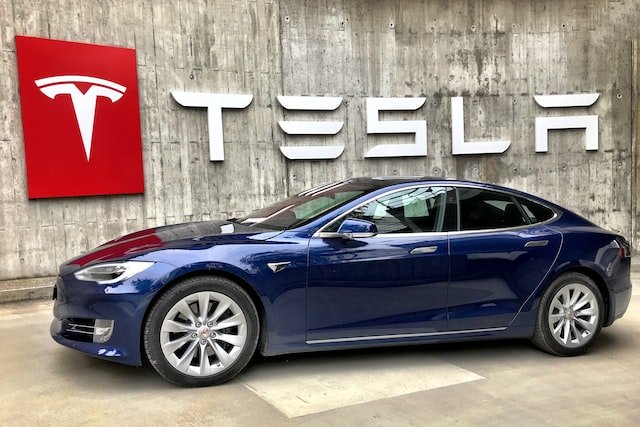
The Indian electric vehicle (EV) market is experiencing a rapid transformation, driven by a surge in demand for sustainable transportation solutions. As Tesla prepares to enter this vibrant market, it faces stiff competition from both domestic and international players. Key competitors include established brands like Tata Motors and Mahindra Electric, as well as international manufacturers such as Hyundai and Nissan, all of which are increasingly focused on electrification.
Tata Motors has emerged as a formidable force in the Indian EV segment with its successful Nexon EV and Tigor EV models. These vehicles not only cater to the budget-conscious segment but also offer local consumers numerous features and sufficient range, making them very appealing. On the other hand, Mahindra Electric is leveraging its expertise in the Indian automotive field, focusing on compact electric vehicles that suit urban commuters. Their partnership with various stakeholders to expand EV infrastructure further enhances their market position.
Internationally, Hyundai has introduced the Kona Electric, which stands out for its advanced technology and robust performance. The brand’s commitment to reducing carbon emissions and offering a diverse range of EVs positions it strategically within the Indian market. Similarly, Nissan’s Leaf has gained traction due to its strong reputation for reliability and efficiency. These rivals’ established presence in the segment poses a significant barrier for Tesla as it prepares for launch.
Tesla aims to differentiate itself through cutting-edge technology, superior battery range, and its extensive charging network. The brand’s high-performance vehicles, such as the Model 3 and Model Y, are expected to appeal to tech-savvy consumers looking for innovation coupled with sustainability. Moreover, Tesla’s dedication to software updates and in-car technology provides distinct advantages that could help it capture market share in India’s evolving automotive landscape.
Technological Innovations Tesla Brings to India
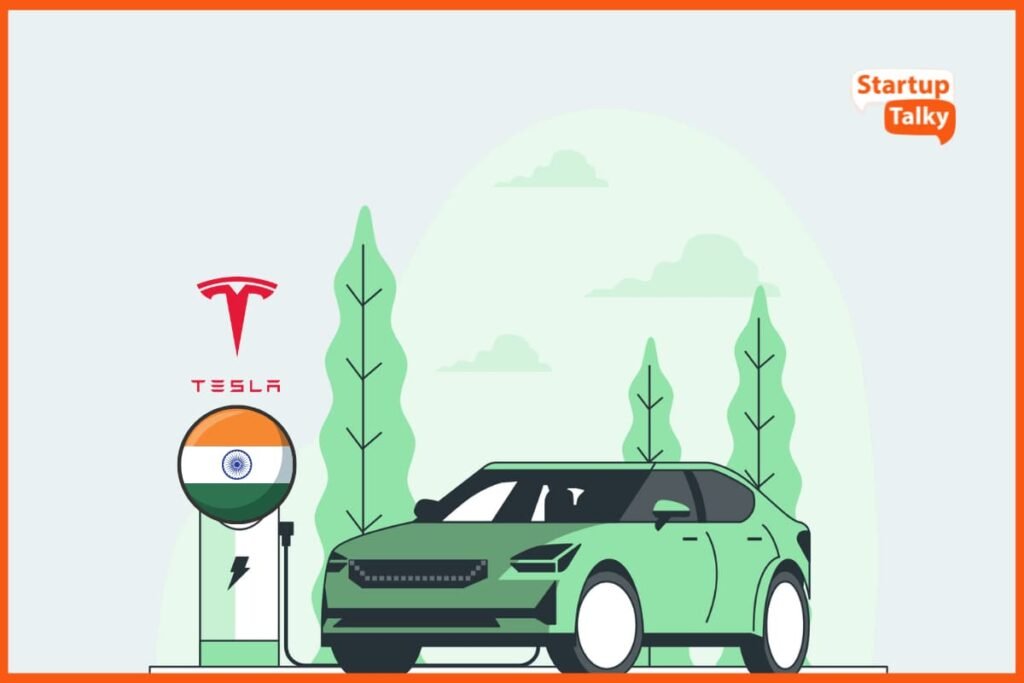
Tesla, a leader in electric vehicle manufacturing, is poised to revolutionize the Indian automotive landscape through its cutting-edge technological innovations. One of the hallmark advancements likely to make its way into the Indian market is Tesla’s autonomous driving technology, designed to enhance road safety and offer drivers an unprecedented level of convenience. Features such as Autopilot and Full Self-Driving capabilities utilize sophisticated algorithms and machine learning to enable vehicles to navigate and respond to their environment with minimal human intervention. This autonomous technology positions Tesla as a pioneering force in promoting an advanced, safe driving experience in India.
Moreover, Tesla’s commitment to energy efficiency is another significant aspect that will resonate with environmentally conscious Indian consumers. The company employs an array of energy-efficient technologies, including hyper-efficient electric motors and regenerative braking systems, which not only extend the range of their vehicles but also reduce energy consumption. With India striving to meet its renewable energy targets and reduce carbon emissions, Tesla’s technological innovations align perfectly with the nation’s goals and consumer aspirations.
In addition to these innovations, Tesla offers an ecosystem of connected services that enhances the overall ownership experience. Features like over-the-air software updates ensure that vehicles remain cutting edge, as they can receive improvements and new functionalities over time without requiring a physical visit to a service center. This remote service capability is especially vital in a diverse country like India, where accessibility can be a challenge in various regions.
As the Indian market becomes increasingly receptive to electric vehicles, Tesla’s technological advancements will play a crucial role in capturing consumer interest and establishing a robust presence. By seamlessly integrating remarkable innovations in its vehicles, Tesla not only sets a new standard for electric mobility in India but also contributes to the broader shift towards sustainable transportation.
Conclusion and Future Outlook for Tesla in India
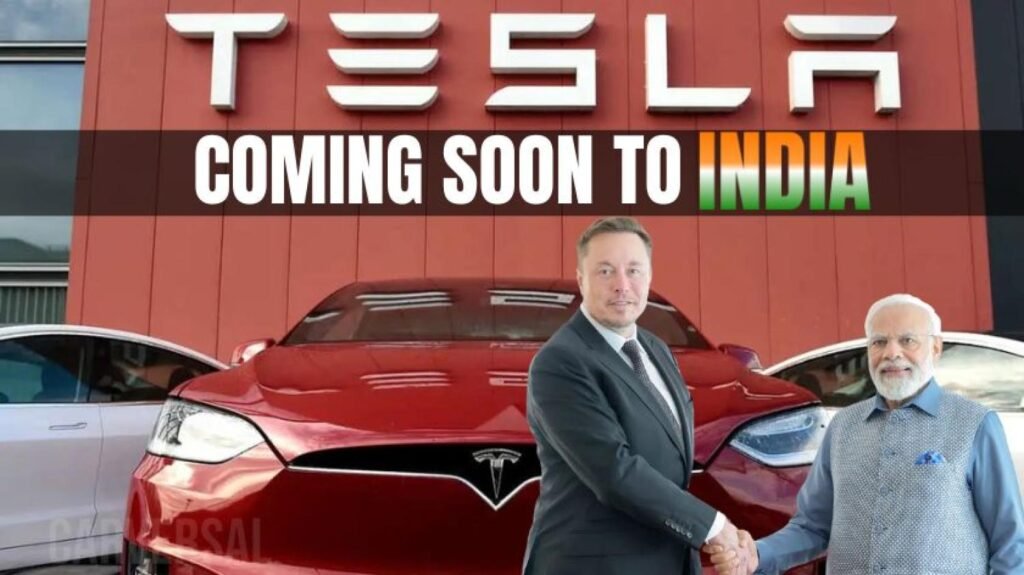
The potential entry of Tesla into the Indian automotive market has generated substantial interest and speculation, reflecting the growing significance of electric vehicles (EVs) in the country. Throughout this discussion, we have highlighted the gradual buildup of Tesla’s operations in India, with recent developments indicating a poised readiness for market penetration. The establishment of a Gigafactory in India, although still in the planning stages, signifies Tesla’s commitment to not only entering but also contributing significantly to the local economy.
As Tesla prepares for its launch, its entry into the Indian market is anticipated to serve as a catalyst for the broader adoption of electric vehicles. The presence of a major player like Tesla is likely to intensify competition among existing and emerging local manufacturers, prompting them to innovate, improve their offerings, and enhance overall quality. This competitive environment could lead to more affordable EV options for consumers, thus accelerating the transition toward sustainable transportation in India.
Moreover, Tesla’s focus on cutting-edge technology and enhancements in battery performance is expected to help set industry standards. The company’s advancements in EV technology may inspire Indian manufacturers to pursue higher innovation levels. As electric mobility gains traction, stakeholders across the value chain, from consumers to suppliers, could witness positive impacts on their operational efficiencies and product lines.
Looking ahead, Tesla’s strategy in India will be crucial in determining its success. The company must navigate various logistical and regulatory challenges while tailoring its offerings to local consumer preferences. The long-term implications of Tesla’s entrance could redefine market dynamics, create more job opportunities in the EV sector, and promote sustainable energy practices. With all these factors in play, the future of Tesla in India appears promising, positioning the company as a leading force in the evolving Indian automotive landscape.
